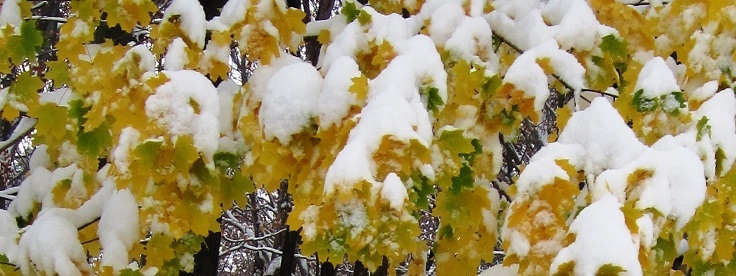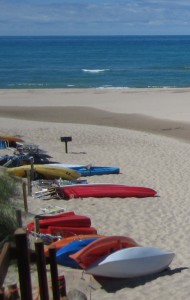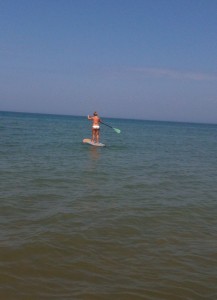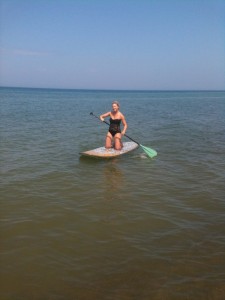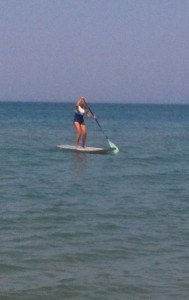In the last 48 hours wild winds and rains whipped through our neighborhood causing umbrellas to flip inside-out and autumn pumpkins to roll off porch steps. Inside the house we could hear Lake Michigan roaring, even though the windows were buttoned up tight.
 Stray tree limbs flew everywhere, and in our back yard a tall, pole-like tree went down, though not all the way. It fell into the “arms” of a nearby tree instead.
Stray tree limbs flew everywhere, and in our back yard a tall, pole-like tree went down, though not all the way. It fell into the “arms” of a nearby tree instead.
The visual of this partially-fallen tree reminded me of a popular expression: “If you fall, I’ll be your soft place to land.” In other words, you’ll go down, but you won’t have a crash landing.
That’s what happened to the tree, and for those of us who are Christians, that’s what happens when God offers himself as our soft place to land.
 A few months ago I turned around in a dark room and didn’t notice my big black dog Jack lying on the dark-colored carpet. As I stumbled over him, I felt myself going down, unable to catch myself. I hit the floor with such a loud crash that my children came running. It was a hard landing for sure, though no permanent damage was done. If only someone had caught me, even just a few inches above the hard landing, the result would have been quite different.
A few months ago I turned around in a dark room and didn’t notice my big black dog Jack lying on the dark-colored carpet. As I stumbled over him, I felt myself going down, unable to catch myself. I hit the floor with such a loud crash that my children came running. It was a hard landing for sure, though no permanent damage was done. If only someone had caught me, even just a few inches above the hard landing, the result would have been quite different.
And that’s what God does for us.
We may be on a fast fall toward disaster and might even be the cause for the whole mess by our own bad decisions, but still he’s willing to catch us. It may not always feel that way as we’re going down, though. During a circumstantial fall, we look for his rescue and wonder where he is. “What’s keeping him?” we say. “Why doesn’t he do something?”
He’s well aware, but often lets us learn the hard way, because that’s when the lessons stick best. As Pastor Erwin Lutzer says, failure is frequently the back door to success. So we feel ourselves falling, failing, dreading the hard landing of horrendous circumstances, and we brace for impact. Then when it doesn’t come, at least not as severely as we thought it would, we wonder what happened.
That is God’s catch.
One of the big reasons he lets us fall/fail is so we’ll recognize our need for him. If we continually succeed at everything we try, we’re much less likely to reach out to a Savior. Recognizing our own need is an important prerequisite for being able to rest in the Lord after he catches us.
When I look out my window and see that partially-fallen tree, I wonder if spring will find it continuing to grow, despite resting on the other tree. After all, it didn’t crash all the way to the ground but found a soft place to land.
“I know, my God, that you test the heart and have pleasure in uprightness.” (1 Chronicles 29:17)



